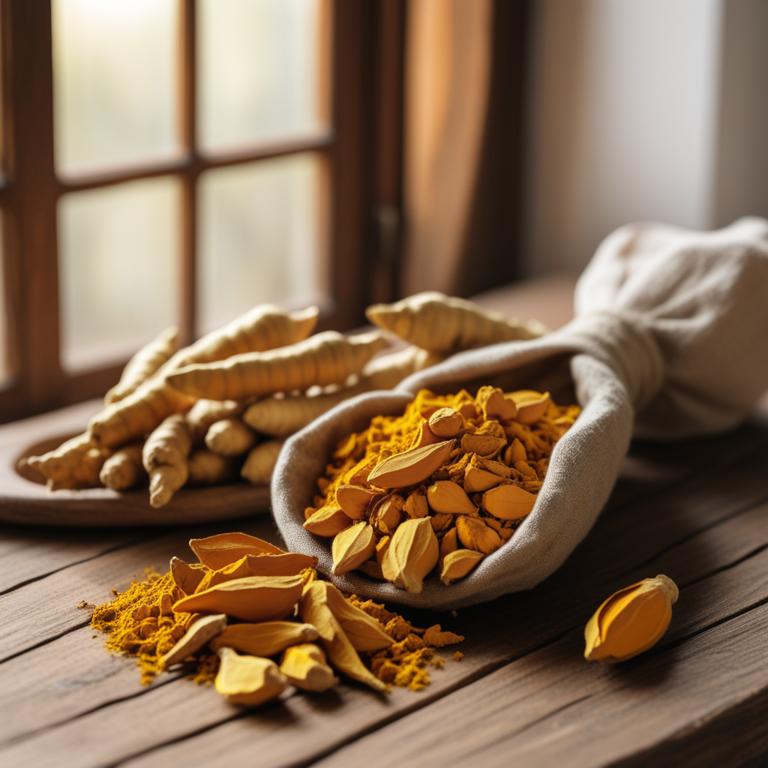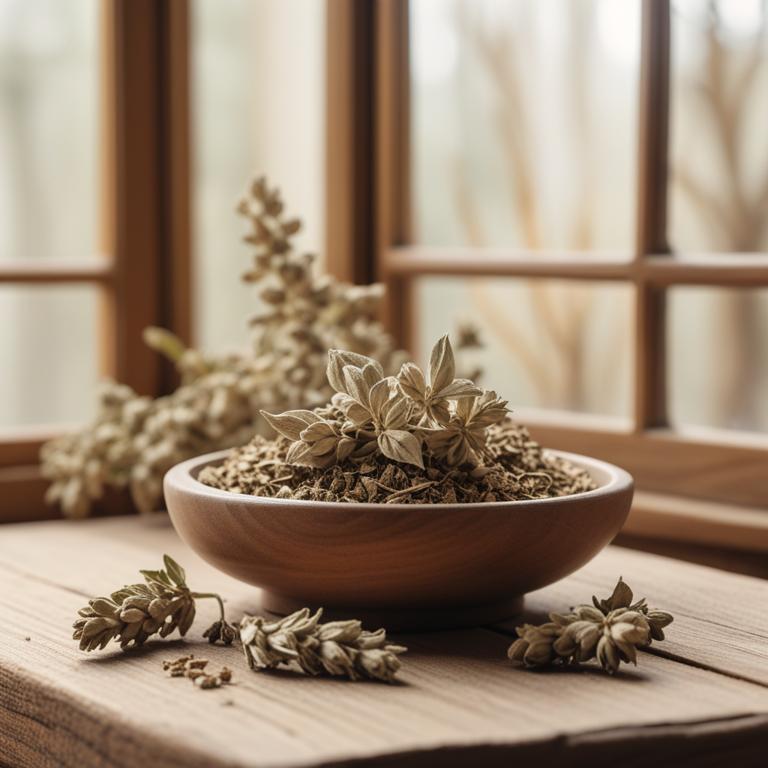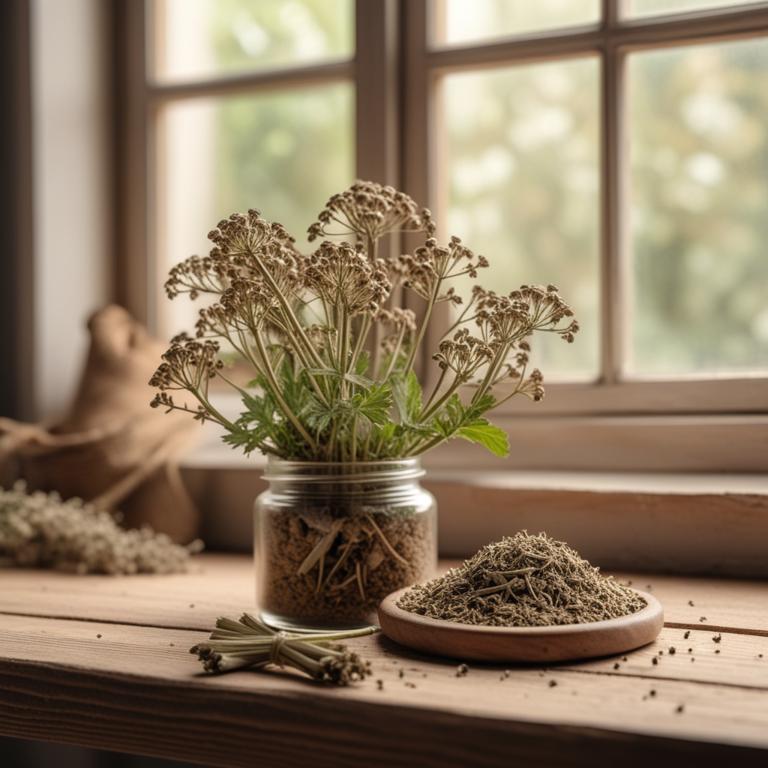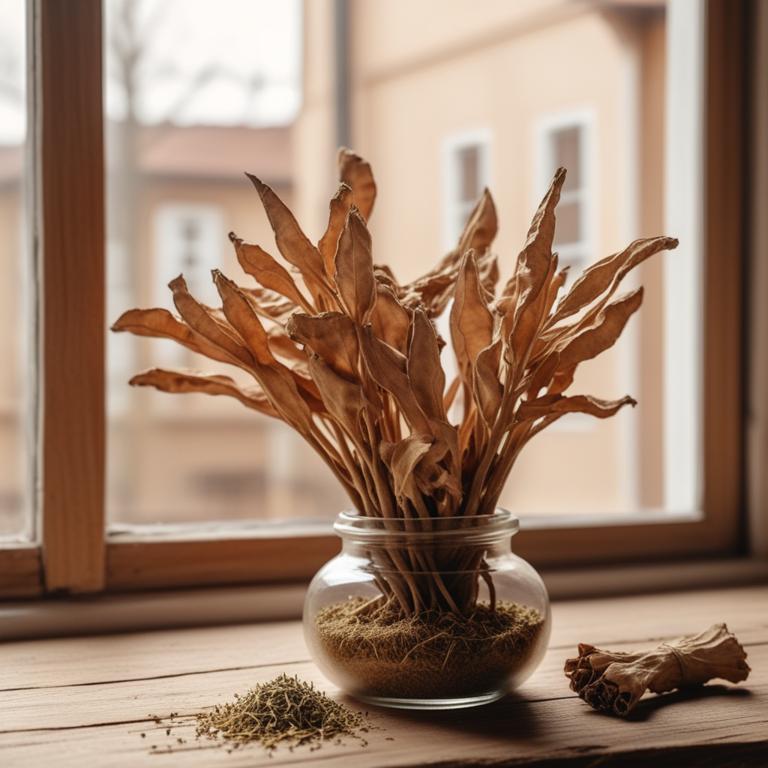Updated: Dec 1, 2024
Peripheral Arterial Occlusive Disease: Natural Remedies and Herbal Preparations
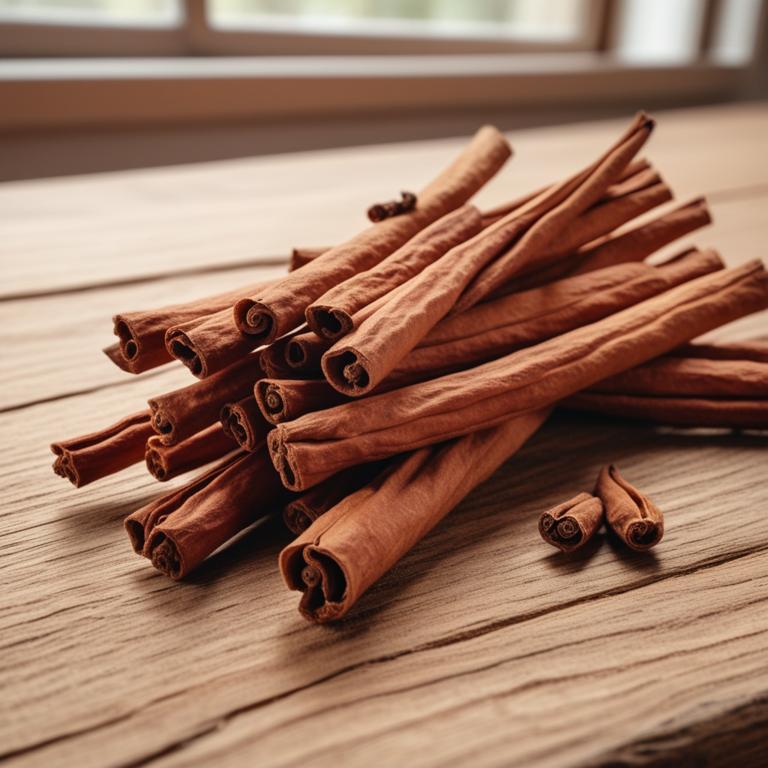
Peripheral arterial occlusive disease, or PAOD, is a condition where the blood vessels in your legs and feet become narrowed or blocked, reducing blood flow.
This can cause pain, cramping, and fatigue in the affected areas, making it hard to walk or engage in physical activities. If left untreated, PAOD can lead to serious complications like ulcers, infections, and even amputation. PAOD is often caused by a combination of factors, including high blood pressure, high cholesterol, smoking, and diabetes. These conditions can damage the inner lining of the blood vessels, leading to the formation of plaques and the narrowing of the arteries.
Fortunately, there are some herbal remedies that may help alleviate the symptoms of PAOD and promote healing. Herbs like ginkgo biloba, turmeric, and ginger have anti-inflammatory and antioxidant properties that can help reduce inflammation and improve blood flow. Ginkgo biloba, in particular, has been shown to improve circulation and reduce the risk of blood clots. In terms of herbal preparations, you can try drinking ginkgo biloba tea, which is often sold in health food stores and online. You can also make a tea by steeping fresh ginger in hot water and adding a little honey for sweetness.
Turmeric tea is another option, made by mixing turmeric powder with hot water and adding a squeeze of lemon juice.
Table of Contents
- What initiates the onset of peripheral arterial occlusive disease?
- How do herbs contribute to the management of peripheral arterial occlusive disease?
- What are the primary medicinal herbs that help alleviate peripheral arterial occlusive disease?
- What herbal preparations are most commonly utilized in the treatment of peripheral arterial occlusive disease?
- Are there specific herbs you should avoid if you have peripheral arterial occlusive disease?
- FAQ
What initiates the onset of peripheral arterial occlusive disease?
The main causes of peripheral arterial occlusive disease are complex and multi-factorial.
Diabetes is one of the main causes, as it damages the blood vessels and makes them less flexible. When blood sugar levels are high, the blood vessels become inflamed and damaged, leading to atherosclerosis, which is the buildup of plaque on the artery walls. This reduces blood flow and can lead to peripheral arterial occlusive disease. Smoking is another significant cause. When you smoke, it damages the inner lining of the blood vessels, making them more prone to atherosclerosis. Smoking also increases the heart rate and blood pressure, which can further damage the blood vessels.
Hypertension, or high blood pressure, is also a major contributor. High blood pressure puts extra strain on the blood vessels, causing them to narrow and harden over time. This can lead to peripheral arterial occlusive disease, as the narrowed blood vessels can't supply enough oxygen and nutrients to the tissues. Hyperlipidemia, or high levels of fats in the blood, is another cause of peripheral arterial occlusive disease. When there are high levels of bad cholesterol in the blood, it can accumulate on the artery walls, causing atherosclerosis and reducing blood flow. Atherosclerosis is the underlying cause of peripheral arterial occlusive disease. It's the buildup of plaque on the artery walls, which can narrow or block the arteries.
This reduces blood flow and can lead to peripheral arterial occlusive disease.
How do herbs contribute to the management of peripheral arterial occlusive disease?
Using certain herbs for peripheral arterial occlusive disease can have several benefits.
One of the main advantages is that these herbs may help improve blood flow to the affected areas, which can reduce pain and discomfort. Some herbs may also have anti-inflammatory properties, which can help reduce swelling and promote healing.
Additionally, these herbs may have antioxidant properties, which can help protect the body from damage caused by free radicals. Furthermore, some herbs may help lower blood pressure and cholesterol levels, which can reduce the risk of complications associated with peripheral arterial occlusive disease.
By reducing inflammation and improving blood flow, these herbs may also help promote the growth of new blood vessels, which can improve circulation and reduce symptoms.
What are the primary medicinal herbs that help alleviate peripheral arterial occlusive disease?

Peripheral arterial occlusive disease (PAOD) is a condition where the blood flow to the legs is blocked, causing pain and discomfort.
Certain herbs have been found to be helpful in improving circulation and reducing symptoms. Ginkgo biloba is one such herb that has been shown to improve blood flow by widening blood vessels and reducing inflammation. This can help to reduce pain and discomfort in the legs. Zingiber officinale, also known as ginger, has anti-inflammatory properties that can help to reduce swelling and pain in the legs. It also has a natural ability to thin the blood, which can help to prevent blood clots from forming and blocking blood flow. Panax ginseng is another herb that has been found to improve circulation and reduce symptoms of PAOD.
It has a natural ability to dilate blood vessels, allowing more blood to flow to the legs. Piper nigrum, or black pepper, contains a compound called piperine that has anti-inflammatory properties and can help to improve blood flow. It also has antioxidant properties that can help to protect against cell damage. Angelica sinensis, also known as dong quai, has been used in traditional Chinese medicine for centuries to improve circulation and reduce symptoms of PAOD. It has a natural ability to dilate blood vessels and reduce inflammation, which can help to improve blood flow to the legs. When used together, these herbs can have a synergistic effect, improving circulation and reducing symptoms of PAOD.
They are a natural and non-invasive way to manage the condition and improve quality of life.
What herbal preparations are most commonly utilized in the treatment of peripheral arterial occlusive disease?
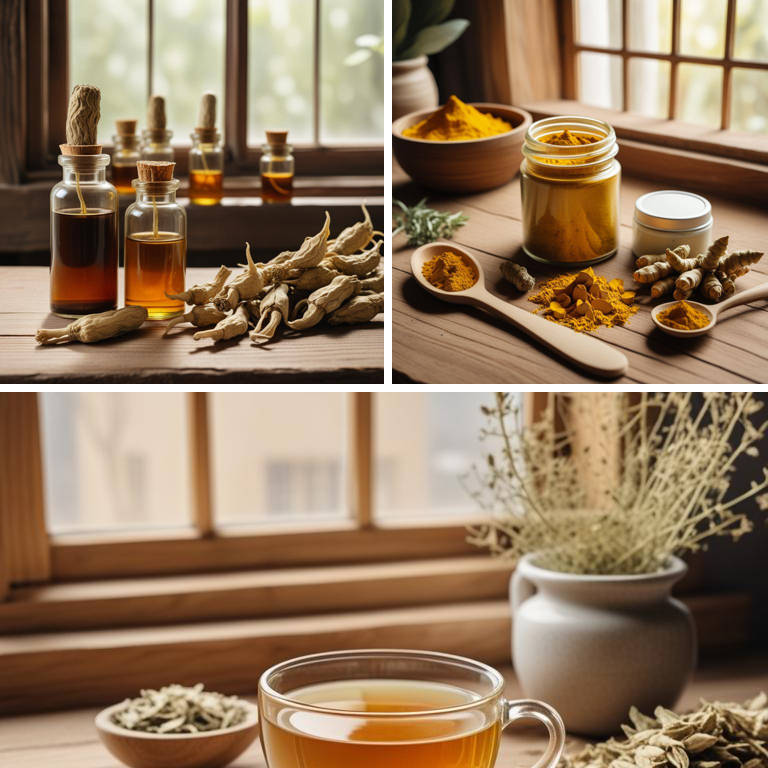
Peripheral arterial occlusive disease, or PAD, is a condition where the blood vessels in your legs become narrow and blocked, causing pain and discomfort.
Herbal preparations can help alleviate this condition in several ways. A decoction, which is made by boiling herbs in water, can help relax blood vessels and improve circulation. This can be especially helpful for people with PAD who have trouble walking or standing for long periods.
A tincture, which is a concentrated liquid extract of herbs, can be applied topically to the affected area to increase blood flow and reduce pain. An infusion, which is similar to tea, can be drunk to help lower blood pressure and reduce inflammation, both of which can contribute to PAD. Herbal creams can be applied directly to the skin to reduce pain and inflammation, while herbal teas can be drunk to help lower blood pressure and improve circulation.
These preparations can be especially helpful for people who are looking for a natural alternative to traditional medications.
Additional Resources:
- 8 herbal tinctures for peripheral arterial occlusive disease
- 10 herbal creams for peripheral arterial occlusive disease
- 10 herbal teas for peripheral arterial occlusive disease
Are there specific herbs you should avoid if you have peripheral arterial occlusive disease?
If you have peripheral arterial occlusive disease, it's best to be cautious with certain herbs that can further constrict blood vessels or worsen circulation problems.
Ephedra sinica, also known as ma huang, is a stimulant that can raise blood pressure and heart rate, making it difficult for already narrowed arteries to get the blood flowing. Catha edulis, or khat, has similar effects, causing blood vessels to constrict and reducing blood flow to the legs.
Hypericum perforatum, or St. John's Wort, may interact with medications you're taking to manage your condition, such as blood thinners or blood pressure medications. Cinchona officinalis contains quinine, which can also have a narrowing effect on blood vessels.
Rauvolfia serpentina, or Indian snakeroot, is known to lower blood pressure, but its interaction with other medications and potential effects on circulation make it a concern for people with peripheral arterial occlusive disease.
FAQ
Are there any specific herbs that can prevent peripheral arterial occlusive disease?
Ginkgo biloba is sometimes used to help improve blood flow to the legs, which may be beneficial for people with peripheral arterial occlusive disease. Turmeric contains a compound called curcumin, which has anti-inflammatory properties that may also help prevent or slow down the disease.
Is it safe to use herbal remedies for peripheral arterial occlusive disease during pregnancy?
During pregnancy, using herbal remedies for peripheral arterial occlusive disease can be a concern.
Some herbs, like ginkgo biloba, may help improve blood flow, but others can cause problems. For example, foxglove and digitalis can slow the heart and worsen blood pressure, which is already higher during pregnancy.
It's essential to be cautious when using herbal remedies.
Are there any herbs that can reduce the frequency of peripheral arterial occlusive disease?
Ginkgo biloba is sometimes used to help improve blood flow and reduce the risk of peripheral arterial occlusive disease.
This may be due to its ability to thin the blood and prevent blood clots from forming.
However, more research is needed to confirm its effectiveness.
Related Articles
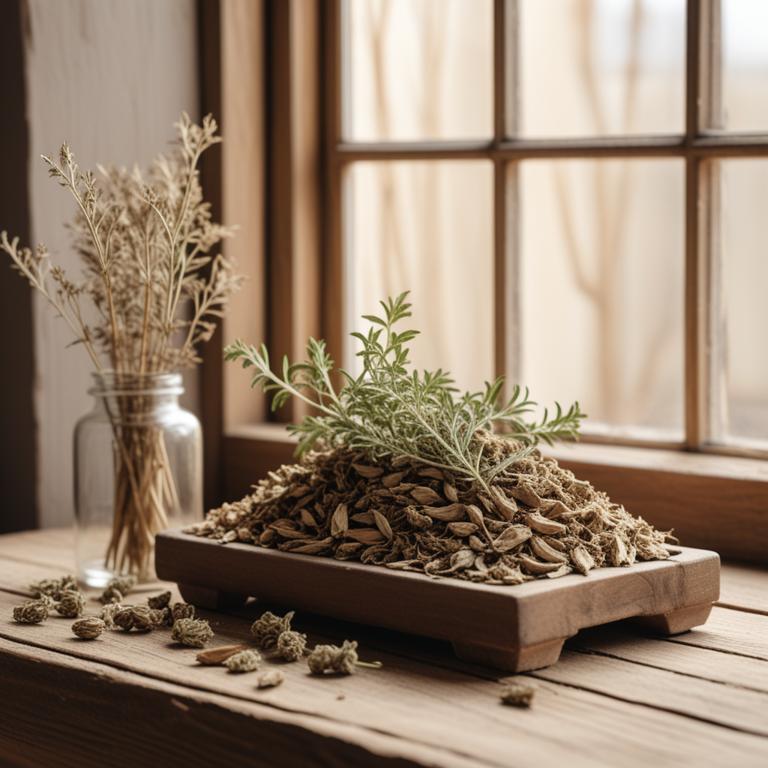
The Causes and Herbal Treatments of High Blood Pressure
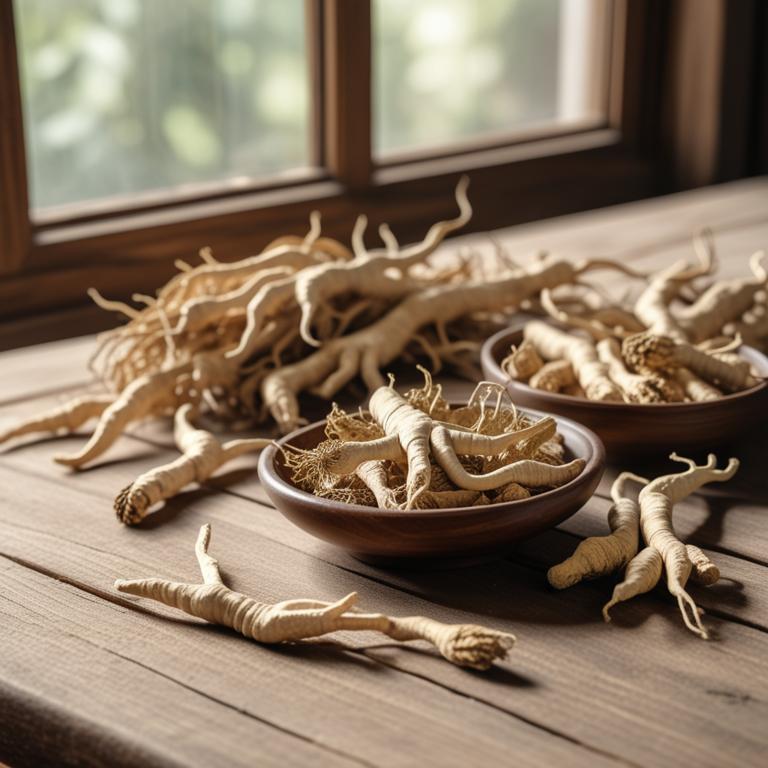
Overcoming Low Blood Pressure: Causes, Herbal Remedies, and Effective Preparations
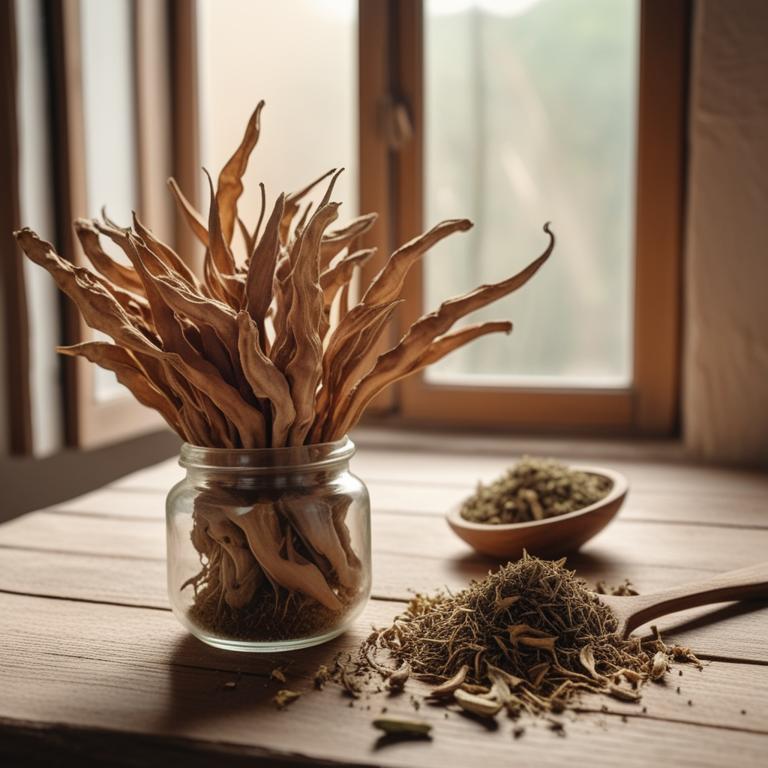
Gum Infection Causes and Medicinal Herbs for Natural Relief
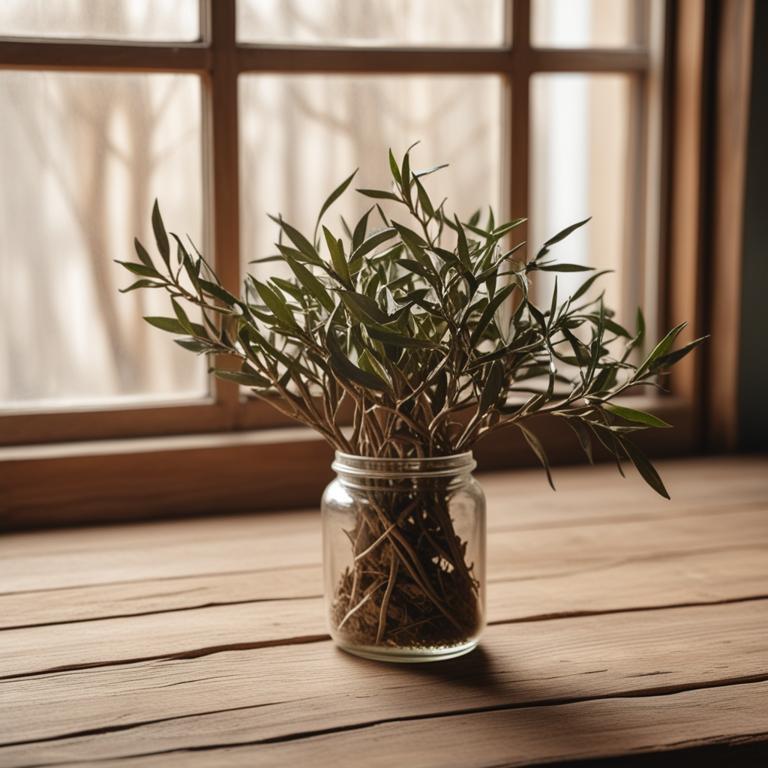
Varicose Veins: Causes, Medicinal Herbs, and Effective Herbal Preparations
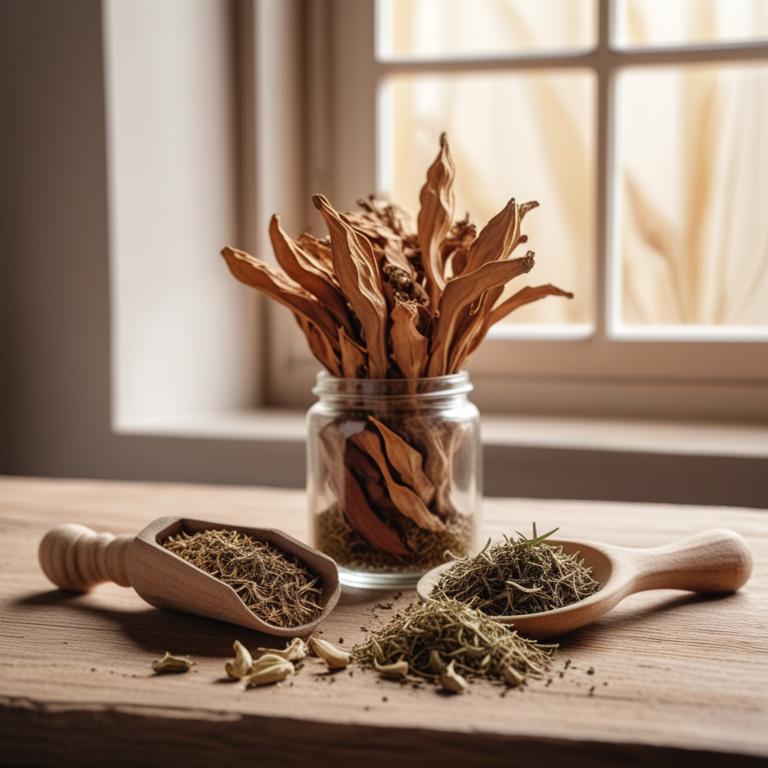
Heart Pain Causes and Medicinal Herbs for Pain Relief
